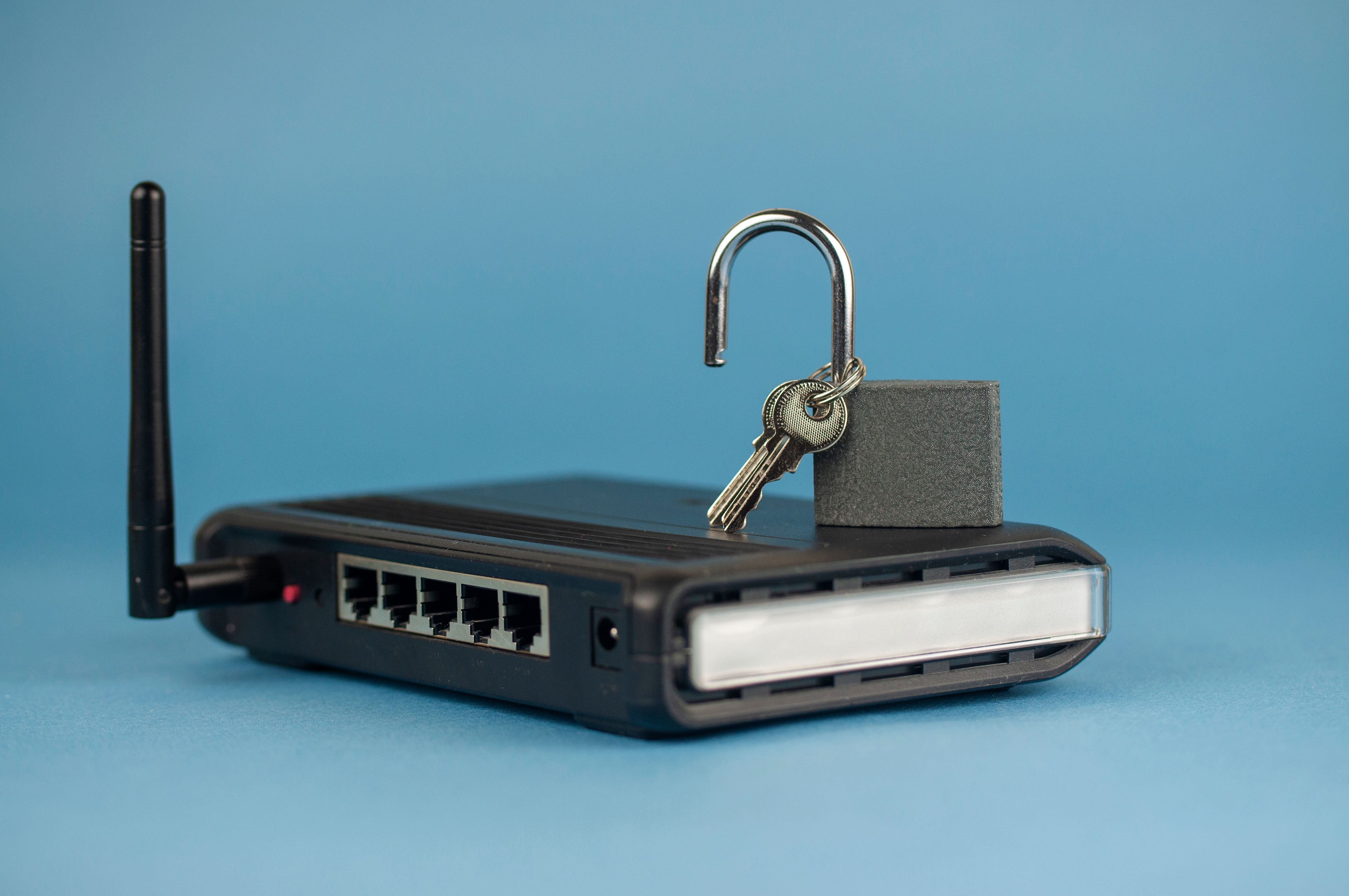Does Someone Know of You Hack There Internet Passwords
Your Wi-Fi password is important to protect; after all, if it leaks out, people tin hop on your network and exercise whatever they please with your internet connection. Yet, there are methods that people employ to take your password and use your connection equally they meet fit.
Hackers know how to hack your Wi-Fi password. Here's how someone may attack your Wi-Fi, how they tin steal your countersign, and what they can do with it.
Why Hackers Want Your Wi-Fi Password
If a hacker gets a concord of the password to your Wi-Fi network, they tin can use your internet connection to do whatever they desire. This can range from using your data to stream videos and download files, to performing illegal action.
Also, getting onto your router is the first step to accessing the devices on it. If you use network-continued hard drives, a hacker will be interested in sneaking into your router and taking a peek for sensitive information.
In that location are many ways a hacker can target a router, only we're focusing specifically on how they tin get your Wi-Fi countersign. This method of attack requires the hacker to exist physically about your dwelling house so they can use the password to connect to your Wi-Fi network.
Merely how well-nigh is "physically nigh?" If yous've e'er taken a laptop out into the garden, you've likely seen how, the farther you go, the weaker the connection is. Somewhen, you get no connectedness at all.
When someone wants to use your Wi-Fi network, they'll apply this same connexion. Equally such, their potential locations are limited to your neighbors, and peradventure the neighbors' neighbors. If yous live in an apartment, the residences around you volition likely have skillful connection strength to your Wi-Fi.
How Hackers Get Wi-Fi Passwords of Neighbors
If you wholly trust your neighbors, there's little reason to believe they'll endeavour to hack your network. However, if you want to stay safe, allow's check out the ways they may lay siege to your Wi-Fi network and how to protect yourself.
i. Cracking Open Insecure Passwords

If someone wants to scissure open up your password, they tin effort ane of 2 methods. They tin either begin guessing your password via brute forcefulness, or they can destroy the security algorithm.
If they cull the quondam method, the hacker is looking for a weak and unsecure password. Y'all know the kind: the passwords that are just "opensesame" or "123456" or even simply "password." These are very easy to pause open and allows the hacker entry into the Wi-Fi network.
Fortunately, routers come up pre-programmed with strong, unique passwords these days. Every bit such, if you keep the default password, a hacker is far less likely to intermission in.
However, these routers besides allow people to change the Wi-Fi password, potentially to something weaker. Every bit such, if you or someone else changed the countersign to something elementary, you may want to consider creating a stronger one.
If they tin't guess the countersign, hackers tin pry open weaker security algorithms. In full general, the older the algorithm, the easier it is for a hacker to break into it.
At the very lesser of the barrel is WEP. This algorithm isn't used or even supported by most modern-day routers, only some older hardware volition still utilise it. A hacker can use tools and crack open a WEP-secured router in an hr max.
On the other hand, you have WPA2 and WPA3. These accept a long time (sometimes years) to crack open up, so using either of those algorithms will prevent a hacker from busting in... at least for a very long fourth dimension.
2. Finding and Using the Default Router Countersign

If you haven't changed your router'south countersign, a hacker can find out what it is and apply it to gain access to your Wi-Fi. Fortunately, routers have come a long way since the "username: admin, password: admin" days; modern ones volition have a generated, unique password with numbers, lower example, and upper case characters.
This feature ways your router has a password that's tough to crevice the moment you plug it in, with no additional effort from you. However, you yet demand to get into your ain router, so the device volition often have the default password printed on information technology somewhere.
While the password on the back of the router makes it like shooting fish in a barrel to remember, information technology does also mean that your router is substantially broadcasting its own password. If you put your router by a window, people can peek in and see the countersign. Likewise, if a neighbour comes effectually to visit, they may have notation of the code before they leave.
As such, be certain to have care of the default countersign. Either hide it away so people tin can't see it from the outside, or change the password to something unique and don't write it down.

Let'due south say your neighbor comes around for a brief moment. They notice that they don't go a good data signal on their phone, so they ask you lot if they can hop on your Wi-Fi. You, being the good neighbor you lot are, tell them the password.
They may have legitimate problems getting a connection, or they may have simply wanted to become your password in the first place. Either way, they now have your password stored on their telephone, and they can now call back information technology after and use information technology for their other devices when they go back home.
The solution seems easy: but don't give out your password. However, if you don't give out your password, y'all'll feel like a terrible host when visitors need to use your internet.
The solution? Guest networks. These are "side networks" that broadcast alongside your main ane. Yous then give your guests the password to connect to this side network.
The best bit is, you can reset the password on the guest network every and so frequently to ensure nobody leeches off it. And you lot don't demand to update your countersign on all of your devices, because they're all connected to the chief network.
Wi-Fi Passwords: When In Doubt, Bandy It Out!
We've made a pretty scary case for Wi-Fi hackers so far. After all, if someone does get your password, they tin can use your cyberspace connection to perform illegal actions or steal data stored on your Wi-Fi connected hard drives.
But never forget that you have the upper mitt when information technology comes to your own router. Because it's physically located in your firm, you'll ever have admission to information technology and can thwart any hacker trying to abuse your net connection.
For instance, modern-day routers can tell you how many devices are connected to information technology. You tin meet this information by logging into your router'southward settings and checking the network statistics. If whatsoever devices expect suspicious, or there'southward a lot of data leaving the router where there shouldn't be, you can change the router password to lock out any hackers.
Yous typically need an admin username and password to access your routers settings, and the password should be different from the Wi-Fi network'southward. Equally such, the hacker can't become into the settings, leaving you free to change the password without them interfering.
Even if the hacker does somehow go the admin countersign and locks you out, you notwithstanding accept physical access to the router. And a good router will have a manufactory reset push on it that will wipe everything the hacker does and lets y'all go your hardware back.
As such, you should be vigilant and protect your Wi-Fi router from hackers. However, at the same time, don't worry too much; information technology'south piece of cake to kick out any would-exist internet thieves and go your network back.
Keeping Your Router Secure
Hackers want your Wi-Fi passwords for a few reasons. Fortunately, considering of how Wi-Fi signals work, simply the people in your immediate vicinity accept the ability to use it. As such, you can defend yourself appropriately and cease people creeping onto your router.
If you really desire to lock down your router, in that location are plenty more than things you can practise on top of the to a higher place tips nosotros've given you. From disabling WPS to changing the SSID, there's lots yous can exercise to keep your router safe.
Image Credit: jijomathaidesigners/ Shutterstock.com
About The AuthorSource: https://www.makeuseof.com/wifi-password-hack/

0 Response to "Does Someone Know of You Hack There Internet Passwords"
Post a Comment